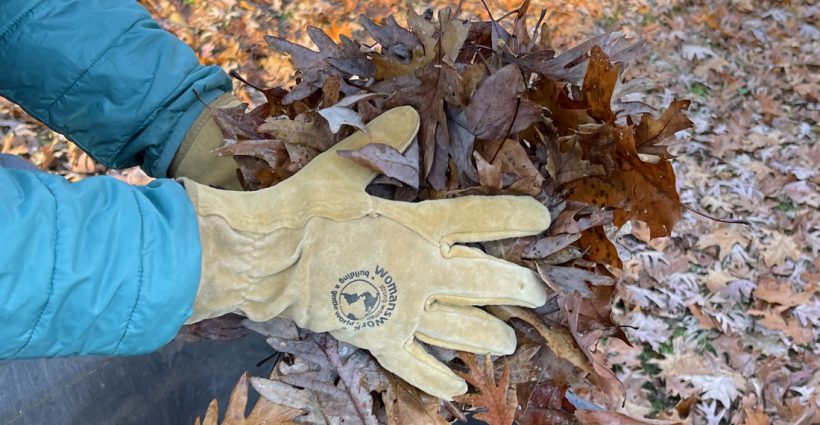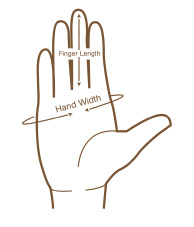designed for the way women work.

Should you leave your fallen leaves? There is no simple answer, by Jeannette Ross
Category: Presenting "The Curious Gardener"
Given an uptick in media attention recently, gardeners may be questioning whether or not they should undertake a full autumn cleanup, particularly when it comes to fallen leaves. Is it better to remove them or keep them? It’s a question that doesn’t have a clear-cut answer.
According to the U.S. Environmental Protection Agency, there are 40 million acres of lawn in the United States, three times more than any irrigated crop. Many of those lawns are dotted with deciduous trees, and when they drop their leaves in the autumn we have to decide what to do with them.
Numerous news stories urge homeowners to leave their leaves alone, postponing cleanup to the spring, if at all.
The arguments for postponing lawn cleanup until spring:
- Leaves left to decay in place will reintroduce vital nutrients into the soil. The leaves of certain tree species, like maples, will decompose faster than other trees, like oaks, creating mulch in the spring.
- Fallen leaves can provide food, shelter and nesting materials for mammals, birds, amphibians and insects. Some insects and caterpillars provide a food source for our backyard birds, especially in the spring when they are feeding hungry hatchlings.
- Some insects considered beneficial are yellow jackets and some species of hornets, because they are pollinators and they prey on damaging insects like cabbage loopers.
- Native bumblebees and yellow jackets are one-season colonies, (unlike honeybees) so as a colony ends its lifecycle it produces queens and drones that are released to mate in the fall. While the drones die, the queens look for a sheltered location to wait out the winter.
- When yard waste is placed in bags and taken to local waste facilities, it not only takes up space, it can break down with other organic waste, creating methane, a noxious greenhouse gas contributing to climate change.
The arguments for cleaning up fall leaves:
- Thick layers of leaves can kill any grass underneath and smother some perennial plants and bulbs.
- “If you have leaf spots or cankers and they fall to the ground,” not cleaning up “will keep them in the environment and they can start new infections in the spring,” says Felicia Millett, of the Plant Disease Information Office of the Connecticut Agricultural Station in New Haven, CT. If your trees are healthy, that is not much of a concern, she added.
- “Leaf litter is a pretty common location for pests, as well as beneficial insects. Pests that will overwinter in leaves include squash bugs, lace bugs, and the four-lined plant bug, which can damage ornamentals, herbs and vegetables in early spring, says Katherine Dugas, an entomologist in the agricultural station’s Insect Information Office.
- If you mulch your fallen leaves by going over them with a mower and raking them into a pile, they will make a nice compost for your garden. Add grass clippings and mix well.
- If you have pollinator plants in your garden you shouldn’t have to rely on fallen leaves to provide a food source or shelter for insects. Leave the plants standing and they will do the job.
- If you have the space, drag your leaves into the woods but try to avoid leaving them in thick piles, which will reduce water getting into the soil.
Municipal Actions:
Gardeners should check their local town ordinances to see what methods of leaf removal are allowed and preferred, and to see if there is a municipal compost pile they can bring their leaves to.
More and more towns are promoting leaf composting. Some towns send vacuum trucks to higher-density neighborhoods to collect leaves residents have placed along street curbs. The leaves are then taken to town compost sites. New Canaan, CT, for instance, usually makes composted material available to residents in the spring.
Gas-powered leaf blowers are becoming more and more unwelcome as sources of air and noise pollution. Some towns are banning them outright, encouraging the use of electric or battery-powered leaf blowers instead.
And, although burning is still allowed in some places, it is definitely frowned upon as a means of removing leaves. Burning releases dangerous pollutants, particulate matter and carbon monoxide, all of which can injure those who breathe in the smoke.
The gloves shown in the photo are Womanswork’s Original Work Glove, Made in the USA. Click here to learn more or to order online.



I have found my leaves that fall are blown away by the wind. Come spring the leaves blown into my garden beds are removed (not as many as in the fall!) and shredded to be put back into the beds. The soil has been greatly improved after several years of doing this.
I lightly rake the leaves from my small lawn into my planting beds in fall and lightly rake everything in spring. Some leaves stay or the lawn and most compost over the winter.
. I don’t pile leaves into areas with plants that reseed like Monarda. Thick layers tend to smother the seeds.
I’m 75. I don’t make unnecessary work for myself. Those leaves turn your soil into black gold. I live on 2 1/2 acres in the middle of a lawn development. In the original farmhouse. I watched neighborhood today raking. Filling the wheelbarrows up. Putting them in plastic bags or dumping them on someone else’s property. They don’t plant flowers, they don’t plant garden s. Even leaves left on the edge of the black top have a surprise waiting. Underneath those leaves are the little excavators of the earth. The Earth Worms. I bring them into my yard.
The dramatic decline of all insect populations should help us see that mulching leaves is a bad practice. Mulching leaves ends up killing all of the good insects that need leaf cover to overwinter. Perhaps a better compromise is to replace large swaths of lawn with native trees, shrubs and perennials, and keep the size of any ‘required’ lawn to the bare minimum.
In the west, communities are restricting where and when lawns can be installed/maintained. I have no doubt that this practice will grow and spread across the country.